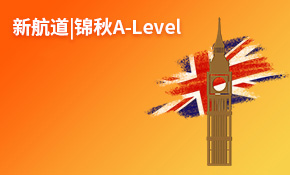托福写作范文:政府和企业是否应该分享科技发明?
托福写作范文:政府和企业是否应该分享科技发明?以下就是南京新航道学校托福频道为大家搜集的2012年10月28日托福写作题目及范文,考生可根据实际情况予以参考。
2012年10月28日托福考试写作题目,英文题目Governments and corporations should share all of their scientific discoveries with the rest of the world.
2012年10月28日托福独立写作题目:重复2012.02.03NA
Do you agree or disagree with the following statement? Governments and corporations should share all of their scientific discoveries with the rest of the world.
2012年10月28日托福独立写作范文:
The majority of government and corporate research first enters the world in the form of commercial goods protected under intellectual property law. However, some believe that the results of their research should be freely shared for the good of humanity, rather than sold commercially. While I understand this well-intentioned sentiment, I have to disagree. I believe that such an idealistic system would actually be detrimental to scientific research overall.
First of all, research requires money. Equipment, staff, and facilities can quickly get expensive if you want to make any sort of reasonable progress. That is one reason why the majority of research conducted by governments and corporations (as opposed to say, non-profit organizations) is commercially driven. Take pharmaceutical research, for example: Every year, pharmaceutical companies pour billions of dollars a year into developing chemicals with medical applications. Of the countless chemicals they might investigate, only a select few turn out to be viable and make it to market. These companies have to sell their products at a price that allows them to recoup their massive research investment.
Secondly, the unfortunate reality is, the majority of people operate on greed principles. This is why capitalism works--it puts greedy people in competition with other greedy people, and as a byproduct the consumer benefits. This is not to say that all cases of research are self-serving, but if you take away the reward--that is, monetary incentive to do research--then progress in a lot of really valuable research would grind to a halt. That is why most countries have some form of intellectual property law: By protecting the creator's (or in this case, the researching organization's) right to commercially benefit from their work, governments incentivize the kind of research that society needs in order to progress. And usually, the fruits of such labor are eventually spread freely anyway: In the United States for example, work becomes public domain after a specified period of time.
Finally, as a matter of safety, certain types of research are better off not being freely distributed, at least at first. Nuclear energy research is an obvious example. Such research should be safeguarded by the countries that first develop it, in order to fully test its consequences before releasing it to the rest of the world. This is because other groups or countries may not have the expertise, resources, or ethical sensibility to apply it safely and responsibly. The same applies to any research into military technology. Can you imagine what would happen if you made such potentially destructive research available to people unable to comprehend its dangers? This would be akin to giving a child a knife.
I can understand why many wish that governments and corporations would release their research for free. However, for the reasons outlined above, such a system would just not be viable given the current realities we face. (Richard, 477 words)
南京新航道学校提供专业的雅思培训、托福培训、GRE培训、SAT培训、剑桥青少英语培训等,帮助广大学子“用英语点亮人生”。
新航道致力于帮助学生提高英语能力,决胜雅思、托福、SAT、GRE等出国考试,分享励志成长、英语学习、考试信息、留学动态,尊重英语学习!南京新航道官网微信号:xhd-nanjing.
新朋友关注方法:
1、添加微信号:xhd-nanjing
2、二维码关注:保存图片——打开微信扫一扫——从相册选择二维码(适用手机端)















